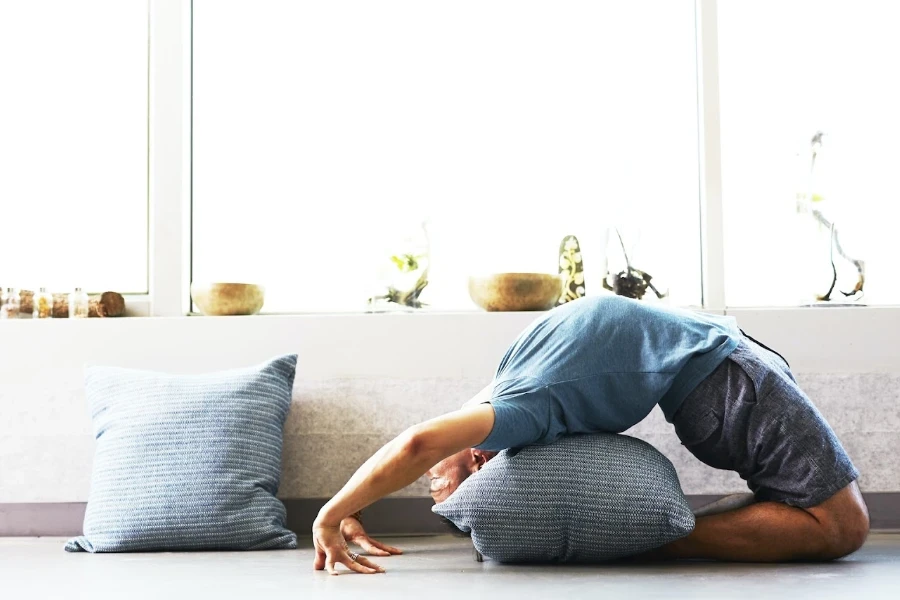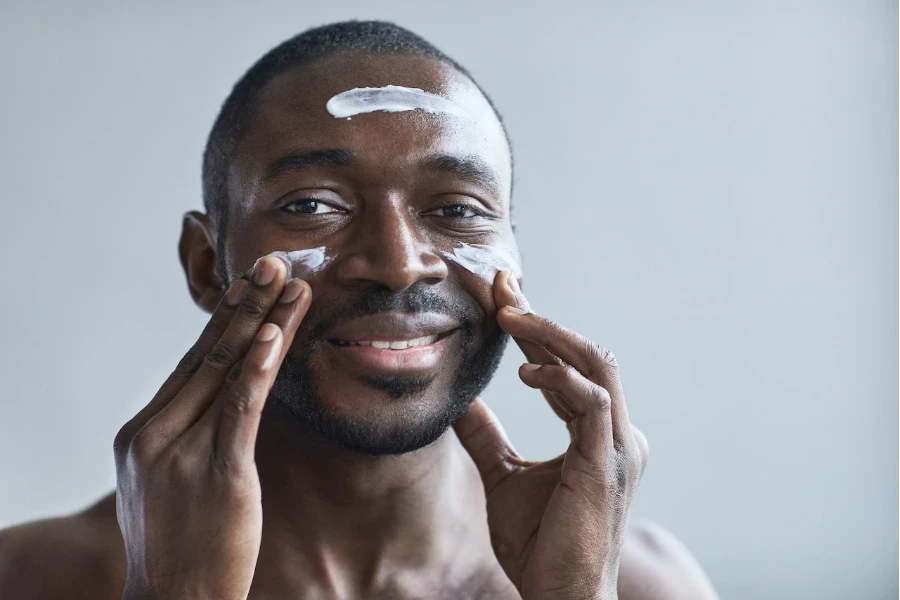Gone are the days when self-care was perceived as a solely feminine pursuit. Today, men across the globe are embracing the importance of nurturing their physical, mental, and emotional health to lead fulfilling lives.
Here we’ll delve into the latest self-care trends specifically tailored for men, providing insights into the practices and habits that have gained momentum in 2023. From skincare routines that go beyond the basics to mindfulness practices that foster mental resilience, we’ll explore how men can prioritize their well-being.
Join us as we uncover the self-care strategies that empower men to break free from traditional norms, fostering a healthier, more balanced approach to life.
Table of Contents
The male grooming and personal care market
What is self-care
Why self-care is important for men
Self-care trends for men
Conclusion
The male grooming and personal care market
In 2020, the global men’s personal care market was valued at US $124.8 billion, and by 2030 it’s projected to reach US $276.9, registering a CAGR of 8.6% between 2021 to 2030. The global men’s grooming products market was valued at US $202.6 billion in 2022 and is projected to grow at a CAGR of 8% from 2023 to 2030. The skincare segment led the market and accounted for a share of around 33.3% in 2022. Increasing awareness among males regarding personal hygiene and grooming globally has been driving the demand for men’s skincare products. The hair styling segment is forecast to have the fastest CAGR at 8.8%.

What is self-care
Self-care refers to activities and practices that are purposefully designed to promote an individual’s physical, mental, and emotional well-being. It involves taking time for oneself and engaging in activities that nurture and restore balance and harmony in life.
Self-care can encompass various aspects of a person’s life, often relating to their physical, emotional, social, and spiritual well-being. It is not a one-size-fits-all concept and can differ from person to person based on individual needs and preferences.
Some examples of self-care practices include:
- Physical self-care: Engaging in activities that promote physical health, such as regular exercise, getting enough sleep, eating nutritiously, practicing good hygiene, and attending to medical needs.
- Emotional self-care: Paying attention to and managing one’s emotions, expressing feelings in a healthy way, seeking support from friends or professionals when needed, engaging in activities that bring joy and relaxation, and practicing self-compassion.
- Mental self-care: Taking care of one’s mental well-being by engaging in activities that stimulate and challenge the mind, such as reading, learning new skills, practicing mindfulness or meditation, engaging in creative hobbies, and seeking mental stimulation.
- Social self-care: Nurturing and maintaining healthy relationships, spending time with loved ones, seeking social support when needed, setting boundaries in relationships, and participating in activities that foster social connection and a sense of belonging.
- Spiritual self-care: Connecting with one’s values, beliefs, or “higher powers” through activities like meditation, prayer, journaling, spending time in nature, engaging in acts of kindness and gratitude, and exploring personal meaning and purpose.
- Practical self-care: Taking care of practical aspects of life, such as managing finances, organizing one’s living space, delegating tasks, and engaging in time management to reduce stress and promote a sense of order.
Remember, self-care is about prioritizing your well-being and making choices that support your physical, emotional, and mental health. It’s essential to listen to your needs, find activities and practices that resonate with you, and bring you a sense of rejuvenation and balance.
Why self-care is important for men
Self-care is vital for everyone, but it holds particular significance for men. Societal expectations often pressure men to suppress emotions and prioritize toughness, making it crucial to embrace self-care to help them break free from these norms and acknowledge emotional needs. Due to stigma, men may face obstacles in seeking mental health support, making self-care practices essential for managing stress and emotions proactively.
Physically, men are susceptible to specific health risks, making regular self-care, including exercise and healthy eating, crucial for mitigating these concerns and enhancing overall well-being. Work pressures, such as long hours and competition, can lead to stress and burnout, underscoring the need for self-care in managing professional lives. Some men may also experience a lack of social support, making social self-care essential for nurturing connections and combating feelings of isolation.
Prioritizing self-care enables men to improve their relationships and be better partners, fathers, friends, and colleagues. As role models for future generations, men practicing self-care can set positive examples and break harmful stereotypes, encouraging others to prioritize their well-being as well. Ultimately, self-care empowers men to lead healthier, more balanced, and fulfilling lives, fostering resilience and a greater ability to navigate life’s challenges with satisfaction and meaning.
Self-care trends for men
In 2023, these are the most important self-care trends for men:
Mental health awareness
There has been a growing recognition of the importance of mental health for men. Men are encouraged to prioritize their mental well-being by seeking therapy, practicing mindfulness and meditation, and engaging in activities that promote stress relief and emotional well-being. We’ve all heard how taking a warm bath or treating oneself to a spa day at home can help you unwind and soothe your body and mind, but this is only one aspect of self-care. Men should focus on finding activities that help them de-stress and reconnect.
A big part of mental wellness is social connection. Recognizing the importance of social connection, men are more often actively seeking and nurturing relationships with friends and loved ones. Engaging in activities, having open conversations, and supporting one another emotionally, contribute to overall well-being.

Fitness and exercise
Regular physical activity is crucial for both physical and mental health. Men across a broad range of backgrounds are embracing various forms of exercise, such as weightlifting, yoga, martial arts, and high-intensity interval training (HIIT). Staying active improves physical fitness and helps reduce stress and enhance mood.

Skincare routine
Men’s skincare has seen a significant surge in recent years. Establishing a skincare routine that includes cleansing, moisturizing, and protecting the skin from the sun is essential. Many brands now offer skincare products specifically designed for men’s unique skin concerns.
When it comes to self-care, it’s vital that the skincare routine goes past the face and includes complete body care. A body care routine also includes exfoliation, cleansing, hydration, and sun protection.
Additionally, incorporating body care into a self-care routine can be a soothing and indulgent experience. Massaging body lotions, scented bath products (like bath bombs or bath salts), and warm baths can help men relax, reduce stress, and promote well-being.

Grooming and styling
Taking pride in personal grooming and style has become a self-care trend for men. This includes maintaining a well-groomed appearance and experimenting with different hairstyles. These activities enhance physical appearance and contribute to overall well-being and confidence.
Here are some grooming and styling activities that men may consider for self-care:
- Hair care: Regular haircuts and styling can help men maintain a neat and polished appearance. At home, using quality hair products, such as shampoos, conditioners, and styling gels, can keep hair healthy and manageable.
- Beard care: Beard grooming is essential for those with facial hair. Trimming, shaping, and using beard oils or balms can keep the beard well-maintained and tidy. Some men may also be interested in beard growth for building confidence.
- Nail care: Keeping nails clean and well-groomed is a simple but effective way to present a polished appearance. Regular trimming and proper nail care also contribute to overall hygiene.
- Body hair maintenance: Depending on personal preferences, men may engage in body hair grooming, including shaving or trimming body hair to the desired length.
- Fragrance: Wearing a pleasant cologne or perfume can boost confidence and leave a positive impression on others.
Conclusion
The growing popularity of the above self-care trends demonstrate that a significant shift has occurred among men, who are increasingly looking to break traditional stereotypes and promote a more inclusive approach to self-care.
While a surge in male-focused personal care products is encouraging, businesses must approach these trends with authenticity and sensitivity. Men seek products that cater to their genuine needs without reinforcing outdated gender norms. Businesses must foster inclusivity, challenge stereotypes, and actively engage in meaningful conversations surrounding self-care and masculinity.
Ultimately, self-care trends among men indicate a positive cultural shift, encouraging them to prioritize their well-being and mental health. Whether its through the adoption of a comprehensive skincare routine, engaging in mindfulness practices, or embracing grooming rituals, men are embracing self-care as an essential aspect of a balanced and fulfilling life.
Moving forward, businesses and individuals must recognize that self-care knows no gender boundaries. Men should feel empowered to explore self-care practices that resonate with them, free from societal expectations. Celebration of this movement can help to promote better health, self-awareness, and a more inclusive definition of self-care for all.





 Afrikaans
Afrikaans አማርኛ
አማርኛ العربية
العربية বাংলা
বাংলা Nederlands
Nederlands English
English Français
Français Deutsch
Deutsch हिन्दी
हिन्दी Bahasa Indonesia
Bahasa Indonesia Italiano
Italiano 日本語
日本語 한국어
한국어 Bahasa Melayu
Bahasa Melayu മലയാളം
മലയാളം پښتو
پښتو فارسی
فارسی Polski
Polski Português
Português Русский
Русский Español
Español Kiswahili
Kiswahili ไทย
ไทย Türkçe
Türkçe اردو
اردو Tiếng Việt
Tiếng Việt isiXhosa
isiXhosa Zulu
Zulu